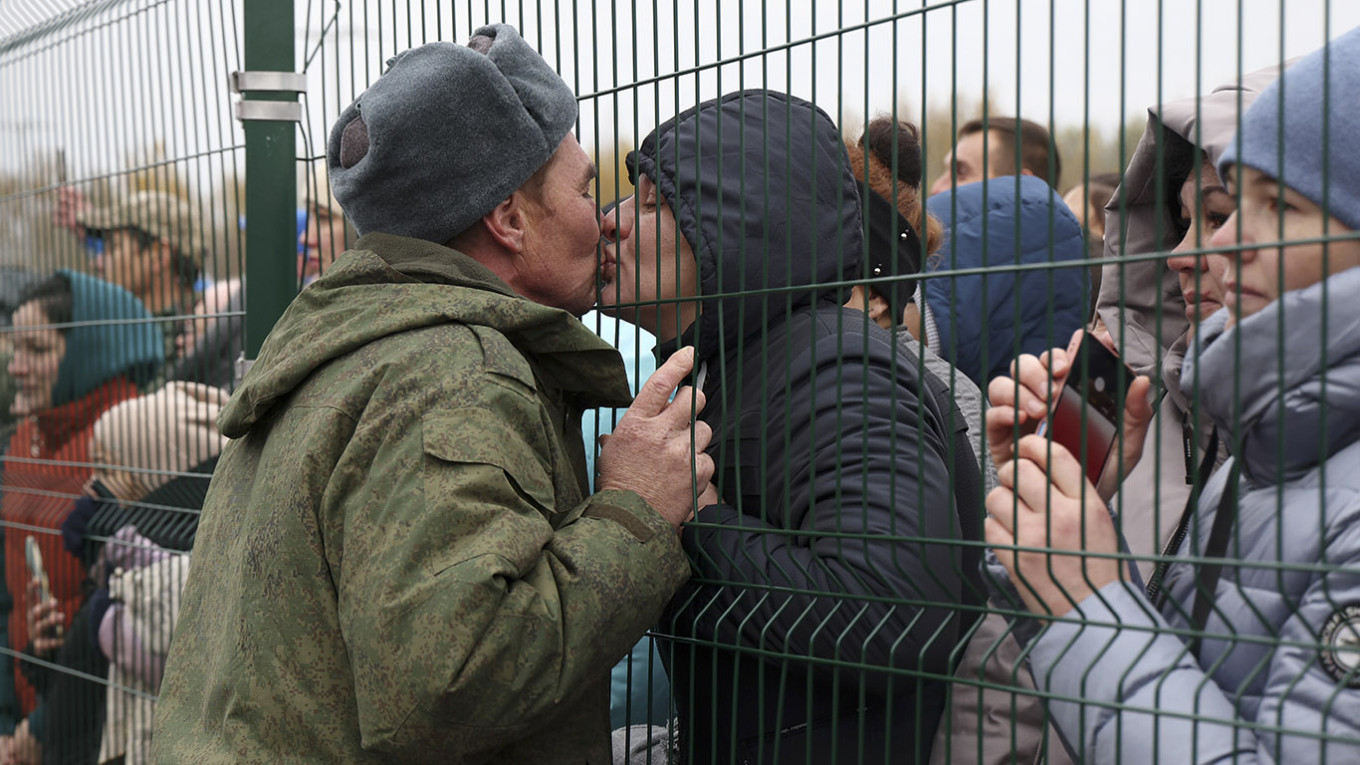**”The Dark Aspects of Romance: Exposing Gold Diggers”**
The recently revised description of the VKontakte group Blacklist SVO reads, “We aim to discuss, denounce, and disgrace those who engage in seduction for monetary gain.”
This group, launched this month, shares names and details of women accused of marrying Russian soldiers for financial benefits or swindling them out of their money.
With Russia’s ongoing invasion of Ukraine entering its third year, soldiers, bolstered by substantial salaries and benefits, have become appealing partners for a number of economically disadvantaged women. Being married to a soldier can grant a woman the opportunity to secretly acquire loans under his name, misappropriate his vehicle, and—if the soldier dies in combat—receive a state compensation of 5 million rubles (approximately $63,111).
However, women suspected of marrying solely for financial motives are increasingly subject to harsh online backlash.
The concept for the Blacklist SVO emerged from a conversation in the popular VKontakte community, Overheard at the SVO, where user Olesya cautioned soldiers about some Russian women’s opportunistic tendencies.
“Let’s compile a blacklist of gold diggers who have already been caught. Include their pictures and information. I think it would really help. I have one potential candidate already,” remarked another user, Valentina, garnering considerable support and encouragement from others to prevent soldiers from falling victim.
Currently, the group has around 100 members, and its audience is steadily growing. It exemplifies how online harassment of women is intensifying in pro-war digital spaces.
In April, the pro-war blogger Anastasia Kashevarova openly called for repercussions against the 21-year-old widow of a Russian soldier named Georgy Kostyrko, claiming she had worked in an escort service and married him out of greed.
“The government shouldn’t be granting blood money to these whores. It tarnishes both the military and the reputation of Russian women,” Kashevarova wrote on her Telegram channel, which boasts nearly 250,000 followers.
According to journalist Natalia Baranova, a fellow at the Center for Women, Peace and Security at the London School of Economics, wartime tends to reinforce traditional and rigid gender roles.
“Men are expected to be protectors, while women should support them. This norm is rooted in gender-based violence and discrimination. Such ideologies permit justification of war and sustain a militaristic narrative focused solely on state interests, neglecting individual concerns,” she explained.
Dasha Manzhura, a gender researcher, suggested that the underlying reasons for this online bullying can be traced to prevailing gender norms in Russia.
“Deviating from accepted gender roles can be perceived as a threat to the collective identity of women, leading to aggressive reactions,” she noted. “Their behavior is driven by a need to defend their beliefs and a fear of having their views challenged.”
The primary objective of this form of online harassment is to intimidate women and publicly assert their supposed place during wartime, Baranova stated. “This situation demonstrates a lack of solidarity among women. True solidarity would involve acknowledging shared struggles—poverty and inequality—as well as the vulnerabilities they face.”
Some women targeted by this backlash are compelled to publicly apologize.
In a notable case from April, law enforcement in Tomsk released footage of a real estate agent who apologized after she humorously suggested that women utilize compensation payments meant for the families of slain soldiers to invest in real estate.
“My actions turned out to be regrettable. I sincerely apologize,” Marina Orlova states in her public address.
Subsequently, a local court mandated her and the blogger who interviewed her to fulfill 80 hours of community service, convicting them of inciting hate and degrading human dignity.
Regional journalists have even aired reports focusing on so-called “predatory” women.
On a local television channel in Nizhny Novgorod, a segment featured a soldier named Mikhail, who sent 900,000 rubles ($11,300) to his ex-wife Yekaterina.
They had wed shortly after Mikhail returned from military leave related to the conflict in Ukraine. When interviewed, he expressed his belief that he had been deceived.
“She stopped responding to my texts after the last transaction and blocked me on social media,” he shares while wearing a camouflage face cover. Mikhail noted he kept sending money in the hopes of building a family.
“It’s heartbreaking that while we defend our country, there are individuals back home exploiting and disappearing with soldiers’ money,” he lamented, stating he plans to pursue legal action against his ex-wife.
In various online dating forums, many soldiers are now explicitly searching for “genuine” love.
“I’m fed up with greedy and materialistic women. I simply want a peaceful family life,” writes Ilya, a soldier currently stationed in Ukraine. He includes a photo of himself in uniform and mentions his self-consciousness about a scar from combat.
“Nice to read… Every word comes from a true man,” comments a follower named Anzhelika beneath Ilya’s post. Others remark that “scars only enhance a man’s appeal” in hopes of making connections.
In other instances, women underscore that they are not interested in soldiers’ finances.
“I’m self-sufficient, independent, sociable, cheerful, and possess a good sense of humor,” describes a 27-year-old single woman from St. Petersburg.
Moderators in military dating groups frequently caution men against sending money to women, citing an increase in “too many beggars.” Debates often emerge about who should bear the costs of travel and other expenses during initial meetings.
Within these discussions, soldiers are often characterized as “trusting men” who are easy prey for deceit.
“It’s a good thing that [Russia] is planning to strengthen laws against greedy women like you. You should serve, instead of going after money,” criticizes one follower in the Overheard at the SVO group.
In May, a proposal was introduced in the lower-house State Duma to prevent military compensation from being divided in divorce cases if the marriage occurred after February 24, 2022.
According to the proposal, these payments would be deemed the soldier’s personal property. Officials argue that the measure is designed to stop women from “exploiting marriage and family law.”
“Women who defy the traditional archetype by marrying for selfish motives pose a threat to gender norms,” concluded Manzhura. “Thus, they become targets not only of other women but also of anyone whose understanding of the world they disrupt.”

